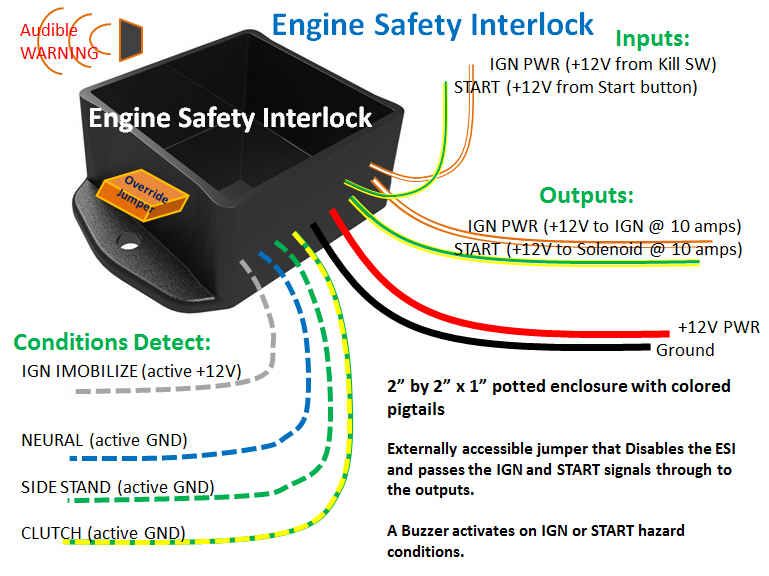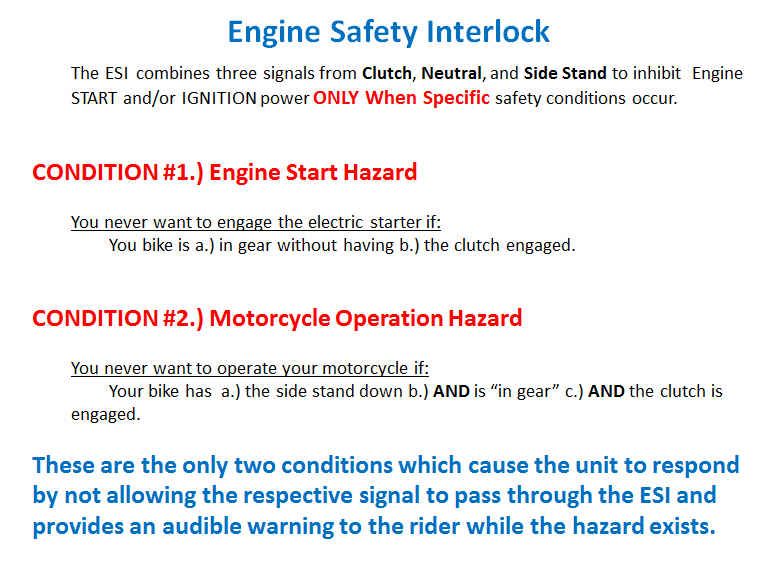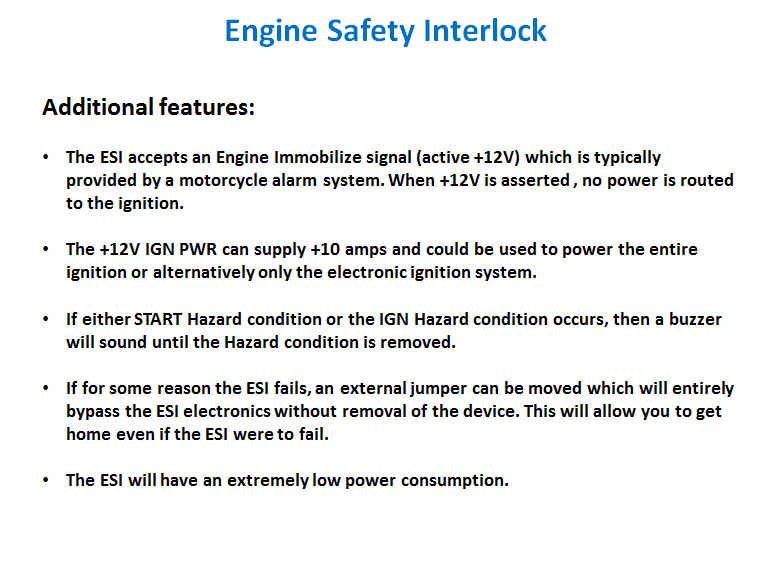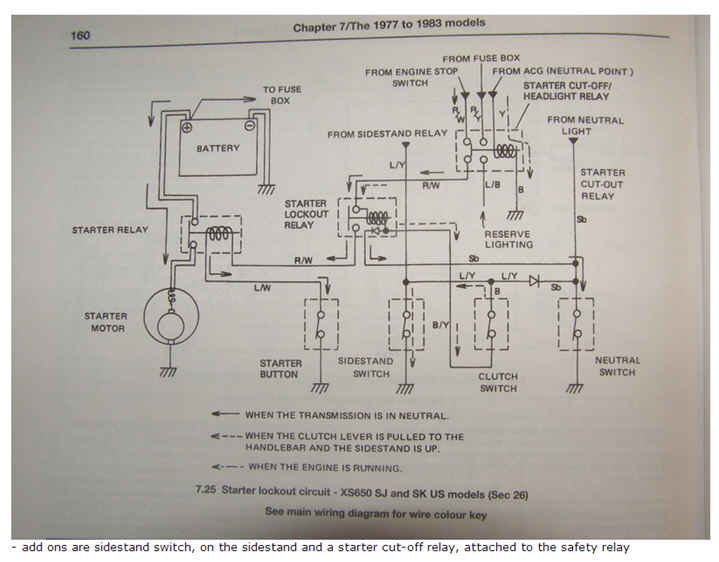While the GS Suzuki only have the aggravating clutch safety switch, most modern bikes have some combination of logic to protect you from your own harm. The usually thing that I see is that the safety logic is designed to be easy to implement even if it prevents you from doing something that you really want to.
For example on a GS forcing you to pull the clutch to start the bike even if you are in neutral.
On other bikes, not allowing the engine to run with the side stand down, even if you are in neutral.
There are probably other bike safety designs that are equally as frustrating but the truth be told no matter how silly you might think a safety interlock is there are absolutely certain conditions under which you don't want your bike to start or run. The problem is most designs don't just exclude these safety conditions , but because of overly simplified safety designs they also stop you from doing things that you really want to do. Like start a bike with the kick stand down and clutch engaged because you are in fact in neutral and there is no safety issue and you do this all the time while putting your helmet and gloves on.
So while you might only begrudgingly agree that maybe there are some benefits to an interlock, and even if it is only making you just a little bit safer I know that many will still want to opt out because they figure it is just something else to fail and leave you stranded. OK so the risk (of failed interlock) v.s. benefit (of safety) may be tilted more toward the risk of being stranded (because you are a really a good and experienced rider and you just never screw up
 ).
). Well, you have to ask yourself a question; What is likely to happen first? Will the interlock fail and strand you before if keeps you from hurting yourself? Are you that good that you never make a mistake before a piece of gear fails. So this is really a personal decision and given and option of being stranded or of being safer it is kind of a toss up, and many will go for the added risk than to bother with an interlock.
But what if there is no way the interlock will strand you, and it will only "protect you " in the specific situations that you really want it to be there, excluding all the conditions when it would just be in the way. In addition if you are screwing up it will not just cut your engine or stop you from cranking, but it will also tell you why with a buzzer. Is that really that bad?
What if you were trying to install a motorcycle alarm, and there is this new option for remote start. Do you want to really install that without an effective way to prevent starts that will end up with the bike laying on the ground?
In addition, motorcycle alarms usually have a wire provided to immobilize your ignition when activated. When the wire goes to +12V the bike can't run. How do you disable your old UJM bike that doesn't have an ECU without running a relay that is going to draw a bunch of power. Well this is also something that the Engine Safety Interlock can easily provide.
So this thread is really a small market survey for what you think you would pay for such a device. Read the description below and pick a price that you think you would pay for something like this. I'll use the information to decide if I build any of these beyond a few prototypes.



.png)
.png)

 ), the engine has to be running and the transmission in neutral, then pull the reverse lever and hit the starter button.
), the engine has to be running and the transmission in neutral, then pull the reverse lever and hit the starter button. However your Wings response to the other hazard condition is exactly as I describe. So I would differ with your characterization of complexity. The ESI would only operate in the two modes I describe and it would be even more specific than your Wing without causing a Hazard (excluding other uninstalled equipment interlocks). I did not worry about reverse of cruise control as few bikes are instrumented with those.
However your Wings response to the other hazard condition is exactly as I describe. So I would differ with your characterization of complexity. The ESI would only operate in the two modes I describe and it would be even more specific than your Wing without causing a Hazard (excluding other uninstalled equipment interlocks). I did not worry about reverse of cruise control as few bikes are instrumented with those. 

 So yes I see even a staunch minimalist can be convinced there are some reasons to have hazard detection
So yes I see even a staunch minimalist can be convinced there are some reasons to have hazard detection
Comment